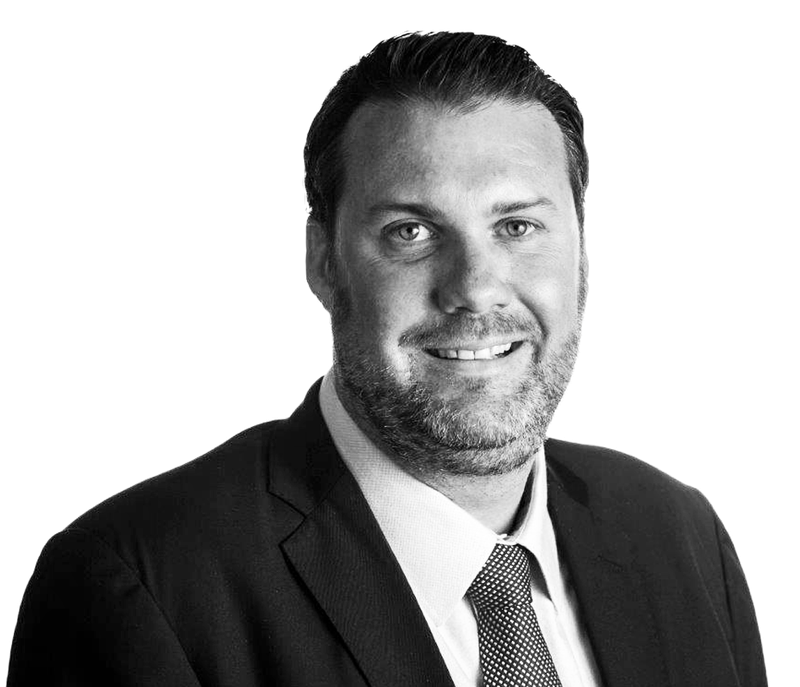Stay abreast of COVID-19 information and developments here
Provided by the South African National Department of Health
The robots are coming
– and what this means for your money
As this year’s biggest tech trend, artificial intelligence is disrupting money management in a significant way. But just how relevant, transformative or, indeed, threatening is it for you?
The complex world of investing and wealth management is being enriched as fund managers adopt artificial intelligence (AI). Computing power is increasingly used to aid decisions relating to portfolio structure and asset allocations.
In the US, AI-run exchange traded funds are one of the fastest-growing investment structures, with millions of dollars under management.
‘AI has been absolutely transformative for investing,’ says Dr Michael D Grant, CTO of DataProphet in Cape Town. ‘Algorithms can run many, many more scenarios than a human is capable of.’
DataProphet is one of a new wave of companies that delve into machine learning, the process of shepherding computers to build knowledge as they go along, much as humans do. The team is mostly young, consisting of skilled computer scientists, statisticians, actuaries, engineers and mathematicians.
‘These tools are now vital to investing. Not using them is like bringing a knife to a gunfight. Not everyone wants to use them but you can be sure the competition is. So ignoring AI is giving a huge advantage to your opposition.’
Skeptics may feel AI is just another fad that will soon pass. However, this view is gradually fading as the tech world embraces machine learning. Andrew Ng, a professor of computer science at Stanford University, is a leading proponent of this trend, which he sees as one of the most important developments in the history of technology.
‘Just as electricity transformed almost everything 100 years ago, today I actually have a hard time thinking of an industry that I don’t think AI will transform in the next several years,’ Ng said at a recent Stanford symposium.

South African mathematician Richard Craib
The big money is taking notice. Earlier this year South African mathematician Richard Craib raised US$1.5 million in London. The startup he founded, Numerai, uses a monthly ‘tournament’ for data scientists to develop models using AI to predict stock market movements, with the best predictions winning money from the company.
‘It’s just a clean data challenge. We manage all the irritating things like the fund structure and the trading,’ Craib told the Financial Times. ‘They can build whatever model they want and simply submit their predictions.’

Numerai uses a ‘tournament’ for data scientists to develop models to predict stock-market movements
Essentially AI is put to work evaluating individual stocks and looking at their performance history. Using data going back years, even decades, it can match the information with future performance. It does this by running simulations of possible scenarios and measuring the outcome.
For wealth management in South Africa, the move to AI is helped by our growing connection to the rest of the world. Half a dozen undersea cables now connect the country to the rest of the globe, and large IT companies now consider us an important market.
‘Clearly South Africa is the core environment,’ says Michael Tobin OBE, former chief executive of data centre operator Telecity. ‘We’re just starting to see the big boys go there: Microsoft, Amazon, Google, and Netflix arrived last year, and you’re seeing burgeoning volumes on the internet exchanges.’
Are there risks associated with AI? Sure. For instance, a dystopian as it may seem, there’s the possibility that humans will be replaced entirely. When that happens, bankers could end up as redundant as horse and cart drivers. The man who headed up Google’s AI-heavy self-driving car programme, Chris Urmson, says AI taking jobs is going to be one of the biggest social challenges of the next 50 years.
‘People always ask that question, about what it means for jobs,’ Urmson said at a recent corporate presentation. ‘I always give the same answer, which is we don’t really know, but it is something we’ll have to deal with at some point.’ Then, there’s every likelihood that hackers sitting in darkened rooms far away will use it to mine for account security breaches, with the intention of plundering them.
But here the problem is also the solution.
‘AI is the best defence against fraud because it has the ability to constantly look for flaws in the system,’ says DataProphet’s Grant. ‘In a way, AI has already been with us for quite some time. Already part of the world we live in.’
Broadly speaking, people in investment management can leverage artificial intelligence (AI) and machine learning (ML) in two ways:
Enhancement of a manager’s current investment process by producing more timely asset allocation and stock selection buy/sell signals on a portfolio of instruments chosen directly by the investment manager.
Total automation of the investment process, in which the AI selects the optimal portfolio allocation based on a pre-defined investment strategy with objectives, constraints and investable instruments.
However AI and ML are applied, their goal is to help investment managers achieve better, more consistent outcomes for clients, with significantly reduced downside risk, which ultimately delivers a better investment experience.
Better than humans?
It’s been proven that the speed of data interpretation and processing power through AI is beyond human capacity. Humans are also emotional and display behavioural biases, which cause them to act irrationally at times.
That said, the best way of knowing how well any investment is doing is to measure it against another investment strategy or a set of investment objectives.
If the AI solution helps achieve an investment outcome in a more efficient, effective way, then it’s doing its job. If you measure it over time against a human discretionary strategy with the same goals, the differences should be clear. It’s not man versus machine, it’s man with machine versus man without.
What clients should know
Like all investment solutions, the proof of the pudding is in the eating. It takes time to show if an AI-based investment solution is doing what clients expect. This is why it’s key to choose firms with live and proven solutions. The AI and ML investment engine that Sanlam uses has multiple years of live operational experience and a real, successful track record.
Sanlam Private Wealth insight shared by:
David Itzkovits
Head of Investments, Sanlam Global Investment Solutions
Your wealth plan is designed with you in mind. Your financial reality, aspirations and risk profile.
Carl Schoeman has spent 22 years in Investment Management.

Have a question for Carl?
South Africa
South Africa Home Sanlam Investments Sanlam Private Wealth Glacier by Sanlam Sanlam BlueStarRest of Africa
Sanlam Namibia Sanlam Mozambique Sanlam Tanzania Sanlam Uganda Sanlam Swaziland Sanlam Kenya Sanlam Zambia Sanlam Private Wealth MauritiusGlobal
Global Investment SolutionsCopyright 2019 | All Rights Reserved by Sanlam Private Wealth | Terms of Use | Privacy Policy | Financial Advisory and Intermediary Services Act (FAIS) | Principles and Practices of Financial Management (PPFM). | Promotion of Access to Information Act (PAIA) | Conflicts of Interest Policy | Privacy Statement
Sanlam Private Wealth (Pty) Ltd, registration number 2000/023234/07, is a licensed Financial Services Provider (FSP 37473), a registered Credit Provider (NCRCP1867) and a member of the Johannesburg Stock Exchange (‘SPW’).
MANDATORY DISCLOSURE
All reasonable steps have been taken to ensure that the information on this website is accurate. The information does not constitute financial advice as contemplated in terms of FAIS. Professional financial advice should always be sought before making an investment decision.
INVESTMENT PORTFOLIOS
Participation in Sanlam Private Wealth Portfolios is a medium to long-term investment. The value of portfolios is subject to fluctuation and past performance is not a guide to future performance. Calculations are based on a lump sum investment with gross income reinvested on the ex-dividend date. The net of fee calculation assumes a 1.15% annual management charge and total trading costs of 1% (both inclusive of VAT) on the actual portfolio turnover. Actual investment performance will differ based on the fees applicable, the actual investment date and the date of reinvestment of income. A schedule of fees and maximum commissions is available upon request.
COLLECTIVE INVESTMENT SCHEMES
The Sanlam Group is a full member of the Association for Savings and Investment SA. Collective investment schemes are generally medium to long-term investments. Past performance is not a guide to future performance, and the value of investments / units / unit trusts may go down as well as up. A schedule of fees and charges and maximum commissions is available on request from the manager, Sanlam Collective Investments (RF) Pty Ltd, a registered and approved manager in collective investment schemes in securities (‘Manager’).
Collective investments are traded at ruling prices and can engage in borrowing and scrip lending. The manager does not provide any guarantee either with respect to the capital or the return of a portfolio. Collective investments are calculated on a net asset value basis, which is the total market value of all assets in a portfolio including any income accruals and less any deductible expenses such as audit fees, brokerage and service fees. Actual investment performance of a portfolio and an investor will differ depending on the initial fees applicable, the actual investment date, date of reinvestment of income and dividend withholding tax. Forward pricing is used.
The performance of portfolios depend on the underlying assets and variable market factors. Performance is based on NAV to NAV calculations with income reinvestments done on the ex-dividend date. Portfolios may invest in other unit trusts which levy their own fees and may result is a higher fee structure for Sanlam Private Wealth’s portfolios.
All portfolio options presented are approved collective investment schemes in terms of Collective Investment Schemes Control Act, No. 45 of 2002. Funds may from time to time invest in foreign countries and may have risks regarding liquidity, the repatriation of funds, political and macroeconomic situations, foreign exchange, tax, settlement, and the availability of information. The manager may close any portfolio to new investors in order to ensure efficient management according to applicable mandates.
The management of portfolios may be outsourced to financial services providers authorised in terms of FAIS.
TREATING CUSTOMERS FAIRLY (TCF)
As a business, Sanlam Private Wealth is committed to the principles of TCF, practicing a specific business philosophy that is based on client-centricity and treating customers fairly. Clients can be confident that TCF is central to what Sanlam Private Wealth does and can be reassured that Sanlam Private Wealth has a holistic wealth management product offering that is tailored to clients’ needs, and service that is of a professional standard.